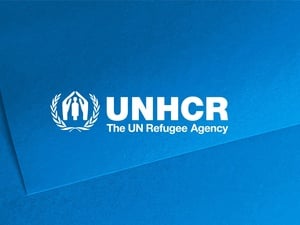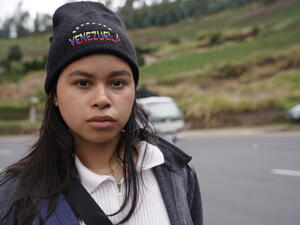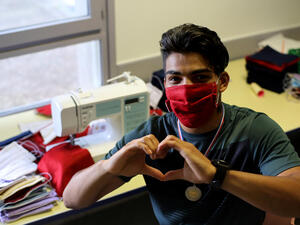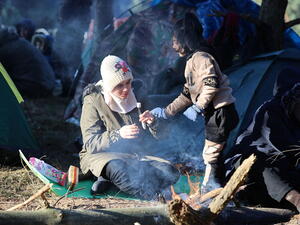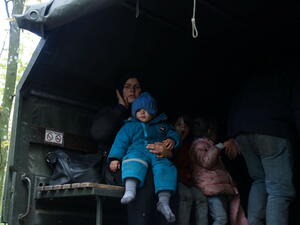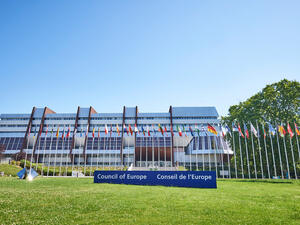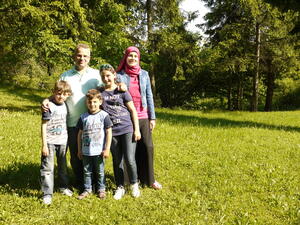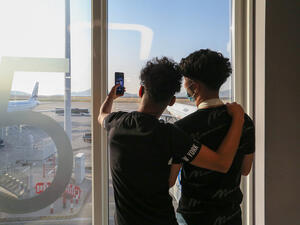Denied entry and pushed back: Syrian refugees trying to reach the EU
Denied entry and pushed back: Syrian refugees trying to reach the EU
UNHCR is greatly concerned over reports of some EU countries placing barriers to entry or forcibly returning asylum-seekers including people who have fled the conflict in Syria. UNHCR is calling, globally as well as in the European Union, for a shift away from border protection to protection of people. If practices to prevent asylum-seekers from accessing territory and procedures are taking place, UNHCR calls on states to cease them immediately. Push-backs and prevention of entry can put asylum-seekers at further risk and expose them to additional trauma.
In Bulgaria UNHCR is seeking more information from the authorities on their reported activities at the border to stem the flow of refugees into the country. Media reports say Bulgaria turned back 100 migrants at the border over the weekend and deployed some 1,200 police officers to the border region. Introducing barriers, like fences or other deterrents, may lead people to undertake more dangerous crossings and further place refugees at the mercy of smugglers.
UNHCR is also concerned over similar reports of asylum seekers being pushed back from Greece to Turkey. UNHCR has asked the Greek authorities to investigate the fate of 150 Syrian refugees, including many families with children, who were reported to have been denied entry in Evros on the 12th of November. UNHCR received information from villagers of the group being detained and transported in police vehicles to an unknown location, although they have not been transferred to a reception center. Their current whereabouts is unknown to us.
In Cyprus, UNHCR has received reports of Syrians arriving irregularly by boat in the northern part of the country and being returned to Turkey following a brief detention. In the southern part of Cyprus, Syrians are increasingly facing difficulties with reception and assistance, and UNHCR is in discussion with the authorities over this issue. As of end September there had been less than 400 asylum applications in the Republic of Cyprus this year.
UNHCR is calling for a global moratorium on any return of Syrians to neighbouring countries. This would represent a concrete gesture of solidarity with these countries that currently host over 2.2 million Syrian refugees. Turkey is currently hosting the largest number of Syrians in Europe, with over 500,000 registered refugees. Returning Syrian refugees to Turkey or other neighbouring countries only adds to the challenges faced by these governments and local communities to support and provide assistance to refugees. Likewise, EU states with external borders cannot be left to shoulder this influx alone. EU responsibility-sharing needs to be demonstrated by greater intra-EU mobility and openness to genuine burden-sharing outside the existing mechanisms.
Persons who are found to be in need of international protection should have access to lasting solutions. This could include mechanisms for an equitable distribution of those recognized as refugees or beneficiaries of subsidiary protection within the EU. It could also be evacuation to a designated Evacuation Transit Centre based on existing models from where resettlement efforts could be undertaken both to European countries and non-European countries. In addition, UNHCR welcomes the discretion exercised by some EU countries not to return all those requesting international protection to their first point of entry in the EU and appeals to others to follow suit, in an effort to demonstrate a measure of solidarity with these EU border countries. UNHCR also calls for the application of all the "Dublin" criteria, including those designed to unite families.
For more information on this topic, please contact:
- In Amman, Peter Kessler on mobile +962 79 631 79 01
- In Budapest, Ariane Rummery (Regional) on mobile: +36 30 530 9633
- In Ankara, Selin Unal on mobile +90 530 282 7862
- In Athens, Ketty Kehayioylou on mobile +30 694 02 77 485
- In Geneva, Adrian Edwards on mobile +41 79 557 9120
- Dan McNorton on mobile +41 79 217 3011


